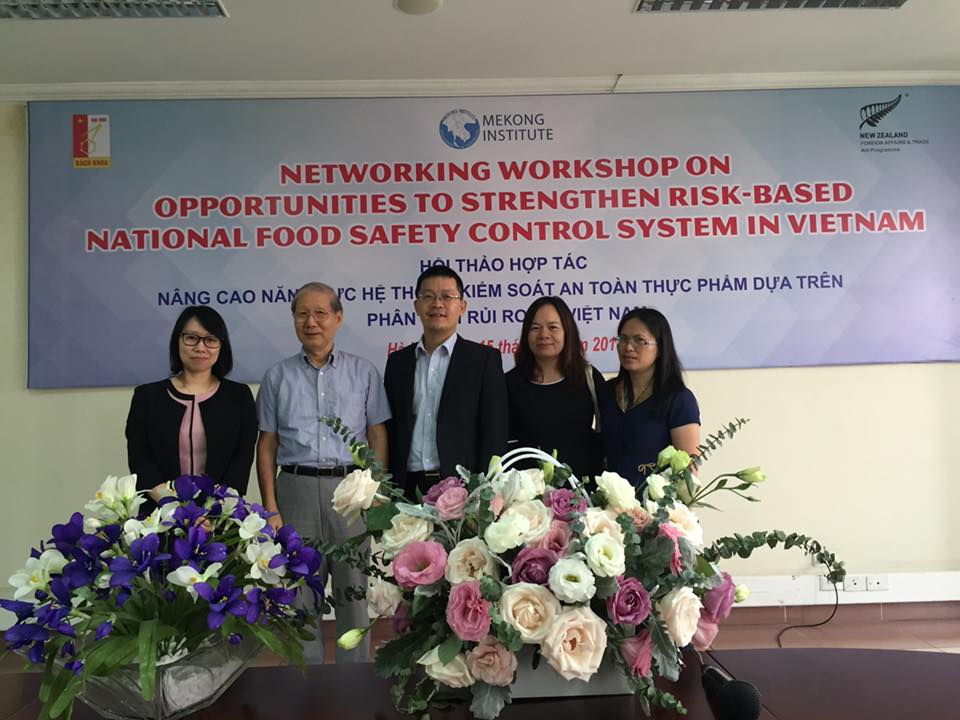A national workshop on Opportunities to Strengthen Risk-based National Food Safety Control Systemin Vietnam was organized on November 15 at the Hanoi University of Science and Technology (HUST). The activity, spearheaded by Dr. Cung Thi To Quynh and Dr. Nguyen Thi Thao, was initiated as part of an action plan under Mekong Institute’s PROSAFE Project, funded by the New Zealand Aid Programme. About 50 participants, six keynote speakers, and 10 invited guests from different disciplines attended the event.
Delivering the opening remarks, Dr. Chu Ky Son, Dean of HUST’s School of Biotechnology and Food Technology, addressed the importance of food safety and food quality control to economic and social development. He emphasized the key role that universities play in addressing food safety challenges by providing training programs, research activities, and initiating networking among domestic and international experts, including MI alumni who are working at various levels in different sectors. Dr. Chu also stressed the need for stronger collaboration among the government, industries, consumers, and academia in assuring food safety along the whole supply chain.
The keynote speakers focused on various topics concerning the state management of food safety; relation between higher education organizations and food industry on food safety; existing tools and best practices to manage food safety from farm to fork; food analysis for food safety control and the application of GS1 system in traceability; as well as food safety-related training and research activities in HUST. The presentations provided updated information and opened new opportunities for future collaboration.
At the end of the workshop, Associate Professor Nguyen Thi Minh Tu, Vice Dean of School of Biotechnology and Food Technology, chaired the session on the opportunities for collaboration between HUST and other stakeholders in addressing food safety issues and improving the current training programs in food quality and safety. The delegates also discussed possible ways to engage industries, governments, civil society, and research institutes in providing necessary knowledge and practical skills to graduate students on food safety and quality management. In addition, the collaboration with GS1 on traceability of newly-developed food products of start-up projects was highlighted.
The workshop was organized to promote effective collaboration among Vietnamese academic and research institutions in the field of food safety. Among the target audiences were from diverse backgrounds in food science and technology: researchers, safety and quality managers from companies, government actors (food inspection and food legislation), higher education students, and other relevant stakeholders.








